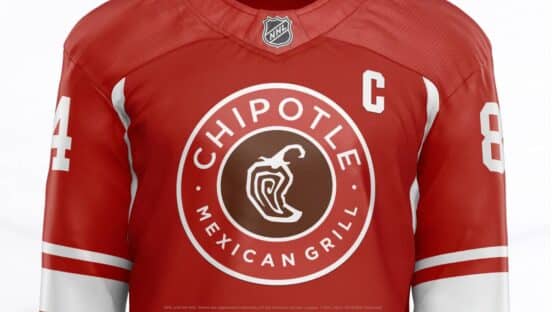If you’ve ever wondered how blue cheese, olive oil, or even bone marrow would taste in ice cream, look no further than Salt & Straw. The Portland, Oregon–based ice cream shop has been churning out unconventional flavors since it started six years ago, leading consumers—and industry insiders—to take notice.
With nearly a dozen units open in Los Angeles, San Francisco, and its home town of Portland, Oregon, the brand is on a mission to not only create quirky flavors, but to also involve itself in each of the communities where it operates through sustainable sourcing, as well as employee and customer engagement.
Co-owner Kim Malek first had the idea for a shop in the late 1990s, but it took more than a decade for the idea to come to fruition. She worked at several global companies, including Starbucks and Yahoo!, before moving back to Portland with her family. Her cousin Tyler Malek also lived in town and became the mastermind behind the ice cream flavors.
They discussed opening a shop designed around the neighborhood, where customers could run into friends, and realized that community focus could extend to all aspects of the brand. The business partners recognized an opportunity to work hand-in-hand with other companies.
“We’re in the Willamette Valley, so we knew it would be a great place to work with the incredible bounty of farmers and farmland we have here, but soon we started to expand that to beer brewers, cheesemakers, chocolate makers, chefs, and nonprofits,” Kim Malek says. “It became this way for us to collaborate with different people that we were inspired by and reflect that in our ice cream.”
For one flavor, Salt & Straw combined Rogue Creamery’s award-winning blue cheese with pears. For another, the brand used Oregon-produced Arbequina olive oil. Each time the Maleks created a new flavor with Oregon or California products, they met with producers to develop relationships, learn their stories, and concoct combinations.
Salt & Straw
FOUNDERS: Kim & Tyler Malek
HEADQUARTERS: Portland, Oregon
YEAR STARTED: 2011
ANNUAL SALES: Undisclosed
TOTAL UNITS: 10
FRANCHISE UNITS: 0
In addition to showcasing seasonal flavors, the shops also use their product as a platform to highlight important causes. In June, Salt & Straw centered the entire seasonal menu around food waste, using everything from cheesemakers’ leftover whey to beet tops from farmers. Flavors included Breakside Brewery’s Spent Grains & Bacon S’mores (with leftover grains and malts from the microbrewery), Urban Gleaners’ Toasted Baguette PB&J (made from the bakery’s surplus bread), and Celery Root & Strawberry Celery Leaf Jam, which used excess celery hearts from a Portland-area farm.
“We think ice cream is a great way to tell stories of what’s happening locally,” Malek says. “In the U.S., we waste 40 percent of our food, but if we repurpose that, we could do great things with it. If we support the organizations that are doing that, we could feed the hungry among us.”
Customers have compared trying various Salt & Straw samples to a wine tasting, and the staff is trained to walk guests through the entire menu while discussing the details that went into each flavor.
“It’s almost like going on a little adventure to taste these different things, and a lot of our customers will go through tasting all these things and they’ll still get the Sea Salt with Caramel Ribbons,” Malek says. “And that’s fine; we love that. It’s an outing for you, and then you pick what you want.”
Salt & Straw designs a unique menu for each city in which it operates and also fosters collaborations to create local products. Malek says the brand could have shipped ice cream from Portland, but it would have gone against the brand’s central focus.
The company has outgrown its production kitchen in Portland and will soon open a new facility. It’s also planning a second shop in San Francisco. Another feather in the brand’s cap? In May, Salt & Straw received funding from none other than famed restaurateur Danny Meyer’s Union Square Hospitality Group, which Malek says has provided an unparalleled blueprint for hospitality.
“They’re taking steps to change what the industry is known for and how it operates, and we hope to have as much of that rub off on us as possible,” she says. “We will continue to push the limits, whether it’s benefits, training, pay, or a career ladder force for growth. … Those are all things they’ve done such a good job at pioneering and things that are important to us.”
Malek says Salt & Straw has approached growth organically and doesn’t have a large master plan. Its main focus is to build a great team. The company’s turnover rate is less than 15 percent.
“We provide an environment where people can come in and have a moment of full-face attention, where our team can slow down and focus on them and take time to connect with them,” Malek says. “I think people need that in the world right now; it’s a very divisive place, and ice cream is a happy thing.”










